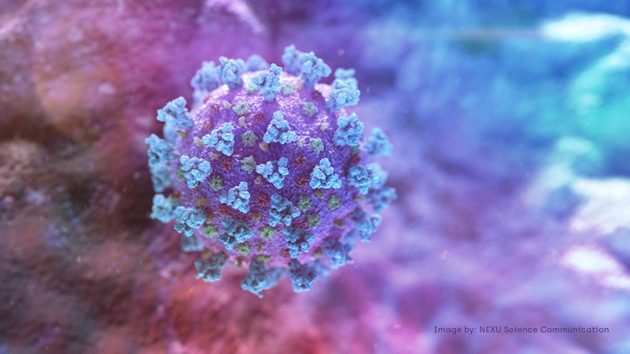Studies: Virus life immunity possible

[Photo/Agencies]
Two new studies say immunity to the coronavirus lasts at least a year, possibly a lifetime, improving over time, especially after vaccination. They suggest that most people who have recovered from COVID-19 and who were later immunized won't need boosters.
The studies published on Monday come as scientists are trying to determine how long the coronavirus vaccine given to individuals in the US will last after initial research suggests that protection could end this fall for the first wave of people vaccinated last winter.
But according to one of the studies from researchers at the Washington University School of Medicine in St. Louis, published in the journal Nature, immunity lasts at least a year — maybe even a lifetime — and continues improving over time and also strengthens after vaccination.
"Last fall, there were reports that antibodies wane quickly after infection with the virus that causes COVID-19, and mainstream media interpreted that to mean that immunity was not long-lived," said senior author of the study Ali Ellebedy, PhD, an associate professor of pathology and immunology, of medicine and of molecular microbiology.
"But that's a misinterpretation of the data. It's normal for antibody levels to go down after acute infection, but they don't go down to zero; they plateau," Ellebedy said. "Here, we found antibody-producing cells in people 11 months after first symptoms. These cells will live and produce antibodies for the rest of people's lives. That's strong evidence for long-lasting immunity."
The studies looked at people who had been exposed to the coronavirus about a year earlier. Cells that retain a memory of the virus persist in the bone marrow and may churn out antibodies whenever needed, according to the study published in Nature.
The other study, posted online at BioRxiv, a site for biology research, found that the so-called memory B cells continue to mature and strengthen for at least 12 months after the initial infection. The study is also under review for publication in Nature.
Several countries worldwide including the US, the UK and member states of the European Union are deciding if there is a need to administer a third booster shot. At the same time, public health officials are investigating whether the coronavirus will become a seasonal threat — much like the flu — that requires annual immunization.
"Is COVID seasonal? Last summer we wondered about that because the virus was new in our entire population. So, there was certainly no abatement,"' Dr William Schaffner, professor of preventive medicine and infectious diseases at Vanderbilt University Medical Center in Nashville, Tennessee, told China Daily "Now whether it becomes more seasonal, this year, next year, I think will remain to be determined."
Trials of Moderna's vaccines showed that protection from the virus lasted from six months to a year in those who got two doses. In March, a report by Pfizer suggested that volunteers in trials who got both doses of its COVID-19 vaccine stayed immune for six months.
Pfizer CEO Albert Bourla has said the company's team of scientists is currently investigating if there is a need for a booster shot later this year. He said that preliminary data suggest it will be needed between eight and 12 months after a person is fully vaccinated.
Johnson & Johnson CEO Alex Gorsky told CNBC that he expects people will need to be vaccinated against coronavirus annually.
There was no comment from Bourla or Gorsky on the two studies released on Monday.
The US has had more than 33.17 million cases of coronavirus and 591,000 deaths as of May 26, according to data from Johns Hopkins University. Coronavirus cases are falling across the US with the average daily rate of new infections at 25,270. The last time the seven-day average of new cases was last below 25,000 per day was in mid-June 2020.








